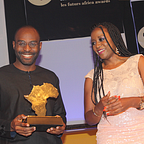Simple Idea: How to Build Livelihoods for Our Youth
Dear Sir,
Unorthodox, I know. I am a graduate student at Princeton University. You said below:
“We have to build livelihoods around these young people. Now notice I am not saying jobs anymore. We have to build livelihoods. In other words we have to bring them out of the starting block as entrepreneurs from Day 1 in ways that the world has not seen before because all the models that are there were created by men and we will create new models.”
Sir, you make an insightful point that resonates and it would be interesting to learn about how you arrived at this conclusion. I have one small disagreement — NOT “entrepreneurs from Day One.” Rather, we should “bring them out of the starting block as management/entrepreneurship-minded apprentices from Day 1.”
I attempted “Day One Entrepreneur” direct investments in 1,500 youth for 3 years. We failed. But learned. Then developed this new model/idea over 4 years at a company we built (zest.com.ng) solely to design how to create livelihoods using existing systems. We are piloting the model with 300 SMEs through a job-linkage program (readysetwork.com.ng).
There’s nothing new here. But we put existing systems together in an interesting way: SMEs, university-style career planning, and professional management programs all rolled into a simple software system. Ultimately, a policy-relevant study could enable continent-wide transformation — building actual livelihoods instead of wasteful efforts we continue to observe. Africa CANNOT afford the time being wasted. We just can’t.
I recognize this email is a “Hail Mary.” 10 mins to convince you to test the model is all I ask.
Bunmi
Systems Map — shows how SME middle management gap/failure persists
—
‘Bunmi Otegbade, Master in Public Policy Candidate 2019
